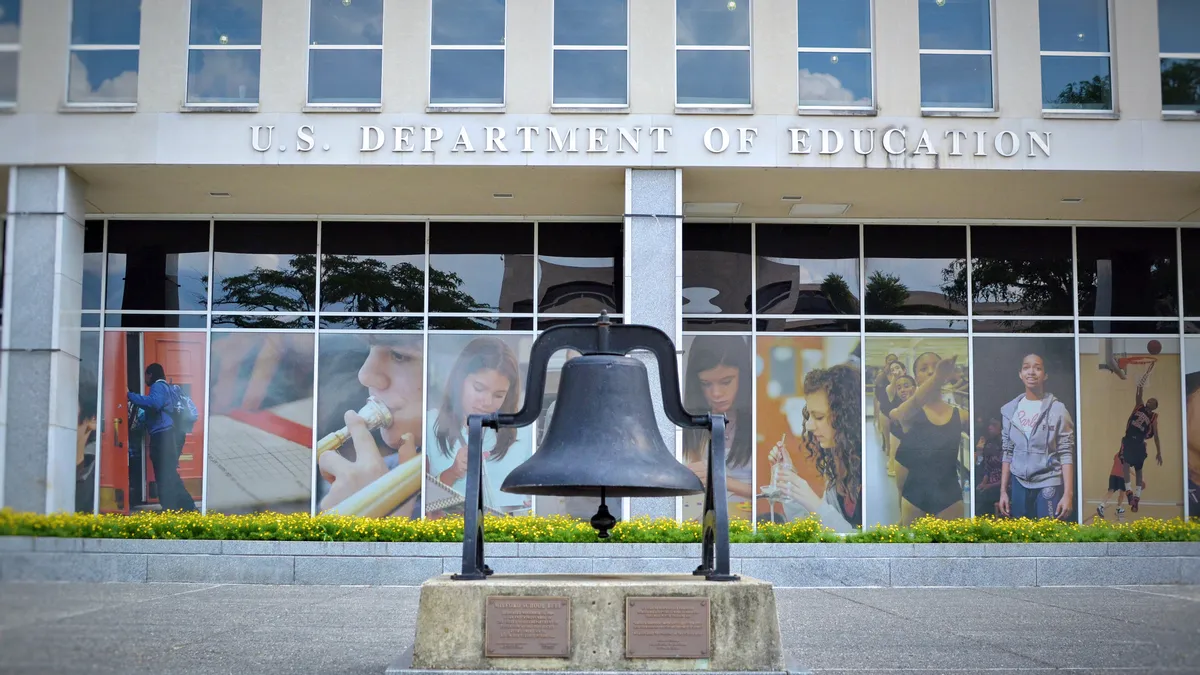Dive Brief:
-
The U.S. Department of Education on Friday rescinded long-standing guidance for how colleges should record and report certain campus crimes to the federal government.
-
The agency's replacement guidelines on the Clery Act give colleges new flexibilities. Officials no longer need to track crimes that occur on public grounds within a mile of campus and can instead decide what areas they'll monitor.
-
But the lack of detailed direction will create more work for colleges, experts say. And the department in recent years has toughened Clery enforcement, issuing multimillion-dollar fines.
Dive Insight:
The Clery Act requires institutions to report certain crimes that happen on or near campus to the Education Department.
Colleges also must regularly release campus crime statistics to the public and issue a warning to campus, such as through a text message, if one occurs.
Campus officials for about 15 years have depended on a handbook that outlines their obligations under the law, the most recent version of which was published in 2016. The department last week pulled that 260-plus-page document and replaced it with a simpler, truncated appendix in the Federal Student Aid Handbook.
The new guide, which does not carry the force of law, states that colleges can make their own "reasonable interpretation" of the Clery Act's terms. However, they must clearly define their interpretations to officials who will review Clery reports, which is a new, and potentially troublesome mandate, said S. Daniel Carter, president of Safety Advisors for Educational Campuses, which consults with institutions about security matters such as Clery.
The vagueness will complicate Clery compliance, Carter said.
The department acknowledged officials' dependence on the handbook, noting in an announcement it would remain archived on its website, but adding that it "will not advise institutions to rely upon it."
Clery penalties have been steep in recent years, signaling the department's intention to come down harder on breaches.
The department fined the University of California, Berkeley, $2.4 million and will monitor the school for two years following Clery violations. And it fined Michigan State University $4.5 million last year for its handling of reports of sexual abuse by former sports doctor Larry Nassar.
Most recently, the department fined Baylor University more than $461,000 for its Clery reporting failures.
Department spokesperson Angela Morabito wrote in an email that the 2016 handbook created additional requirements for institutions not included in the law or regulation, and that the department heard concerns the document "was an example of regulatory overreach." The new appendix, Morabito continued, "does not change, weaken, or remove" institutions' Clery obligations.
This story has been updated with a comment from the U.S. Department of Education.















